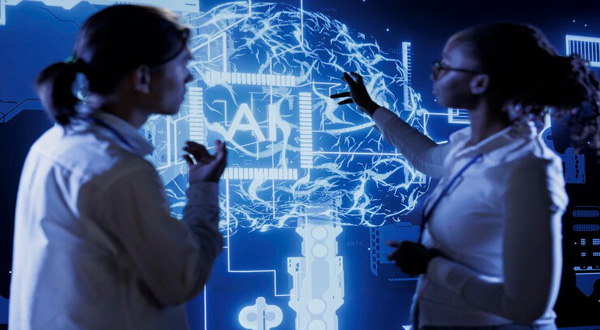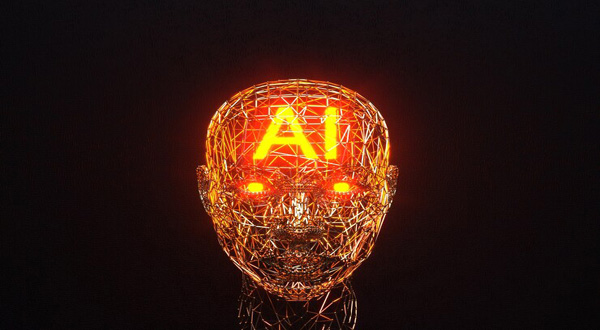Unraveling the Wonders of Artificial Intelligence
- Update Time : Friday, March 1, 2024
- 17 Time View

Introduction
Unraveling the Wonders of Artificial Intelligence: Welcome to the realm of Artificial Intelligence (AI), where the lines between science fiction and reality blur into a fascinating landscape of innovation and possibilities. In this article, we embark on an exploration of AI, demystifying its concepts, applications, and impact on our daily lives. So, fasten your seatbelts as we dive into the captivating world of AI!
Table of Contents
| Sr | Headings |
|—–|———-|
| 1. | What is Artificial Intelligence? |
| 2. | The History of AI |
| 3. | AI in Everyday Life |
| 4. | Applications of AI |
| 5. | Ethical Considerations |
| 6. | The Future of AI |
| 7. | AI and Job Market |
| 8. | AI in Healthcare |
| 9. | AI in Entertainment |
| 10. | Conclusion |
- What is Artificial Intelligence?
Artificial Intelligence, often abbreviated as AI, refers to the simulation of human intelligence processes by machines, primarily computer systems. It involves the development of algorithms and systems that can perform tasks that typically require human intelligence, such as learning, problem-solving, perception, and decision-making.
- The History of AI
The concept of AI dates back to ancient times, but it wasn’t until the mid-20th century that significant advancements were made. In 1956, the term “Artificial Intelligence” was coined at the Dartmouth Conference, marking the birth of the field. Since then, AI has evolved rapidly, with milestones such as the development of expert systems, neural networks, and machine learning algorithms.
- AI in Everyday Life
From voice assistants like Siri and Alexa to personalized recommendations on streaming platforms, AI has seamlessly integrated into our daily lives. It powers the algorithms behind social media feeds, search engine results, and even autonomous vehicles, enhancing convenience and efficiency.
- Applications of AI
AI finds applications across various sectors, including healthcare, finance, education, and transportation. It enables predictive analytics in finance, personalized learning experiences in education, and diagnostic assistance in healthcare. Moreover, AI-driven automation streamlines processes, leading to increased productivity and cost savings.
- Ethical Considerations
As AI continues to advance, ethical considerations become paramount. Questions regarding data privacy, algorithmic bias, and job displacement arise. It’s crucial to ensure that AI technologies are developed and deployed responsibly, considering their potential societal impact.
Read More: Unveiling the World of Artificial Intelligence: Exploring Various Types
- The Future of AI
The future of AI holds limitless possibilities. As technology evolves, AI is expected to revolutionize industries, redefine business models, and augment human capabilities. However, it’s essential to approach this future with caution, balancing innovation with ethical considerations.
- AI and Job Market
The integration of AI into the workforce raises concerns about job displacement. While AI automates certain tasks, it also creates new opportunities for skill development and innovation. Adapting to this changing landscape requires a proactive approach to education and training.
- AI in Healthcare
In healthcare, AI facilitates early disease detection, personalized treatment plans, and drug discovery. From medical imaging to predictive analytics, AI-driven solutions improve patient outcomes and optimize healthcare delivery.
- AI in Entertainment
The entertainment industry harnesses AI for content recommendation, production optimization, and audience engagement. AI algorithms analyze viewer preferences to deliver personalized content, enhancing the entertainment experience.
Conclusion
In conclusion, Artificial Intelligence continues to revolutionize our world, shaping the way we live, work, and interact. As we navigate this AI-driven era, it’s crucial to embrace innovation while addressing ethical considerations and societal implications. Together, we embark on a journey into the future, where the possibilities of AI are as limitless as our imagination.
Read More: Understanding Artificial Intelligence: A Simple Guide for Everyo
FAQs (Frequently Asked Questions)
- What are the different types of AI?
AI can be categorized into three main types: narrow or weak AI, general or strong AI, and artificial superintelligence.
- How does AI learn?
AI learns through data-driven algorithms, where it analyzes large datasets to identify patterns and make predictions.
- What are some ethical concerns surrounding AI?
Ethical concerns related to AI include data privacy, algorithmic bias, job displacement, and the potential for misuse of AI technologies.
- Can AI replace human jobs entirely?
While AI can automate certain tasks, it also creates new job opportunities in fields such as data science, machine learning, and AI development.
- What role does AI play in climate change mitigation?
AI contributes to climate change mitigation efforts through applications such as predictive analytics for weather forecasting, optimization of energy consumption, and monitoring environmental changes.












